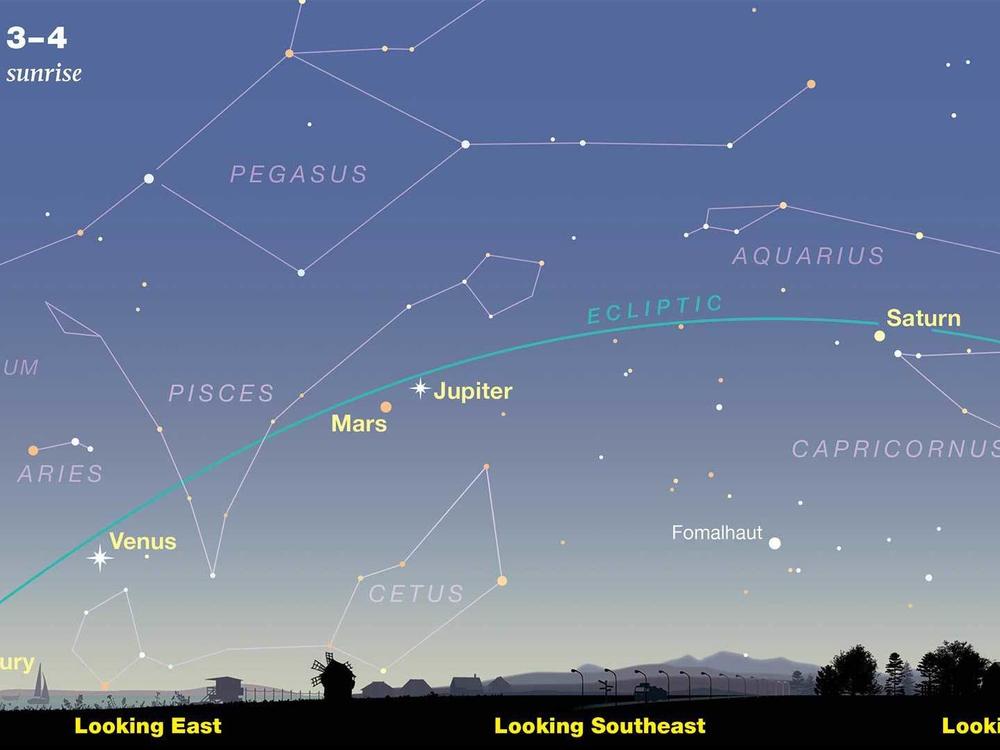Section Branding
Header Content
Grab your binoculars: 5 planets are lined up nicely for you to see at dawn this month
Primary Content
Grab your binoculars and set your alarm.
For the first time in 18 years, five planets — Mercury, Venus, Mars, Jupiter and Saturn — will be sequentially aligned and visible at dawn throughout this month.
Those watching from the continental United States should be able to catch a look, as long as they're up early enough, Diana Hannikainen, Sky & Telescope's Observing Editor, told NPR.
The five-planet alignment isn't "incredibly rare," Hannikainen said. These planets were last lined up in sequential order in 2004, and it's set to happen again in 2040.
"But it's rare enough that if we get the opportunity to step outside in the morning and check it out, it's worth it," Hannikainen said.
As June drives on, Mercury will become easier to see, she said. On June 24, the view is expected to be particularly special. That day, viewers should also be able to see the waning crescent moon between Venus and Mars.
If you want to take a gander, be sure to be at your viewing spot about 30 minutes before sunrise, Hannikainen says. For most, an ideal spot should have a clear view of the horizon toward the east. And binoculars are critical, she adds.
"Don't be disappointed if you don't catch Mercury early on," she says. "Some people might be able to catch the five planets out early in the month, but not to be too disappointed. Four planets already is a beautiful, beautiful sight."
Copyright 2022 NPR. To see more, visit https://www.npr.org.


